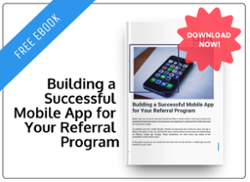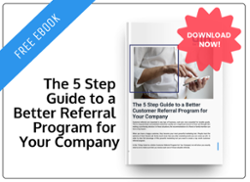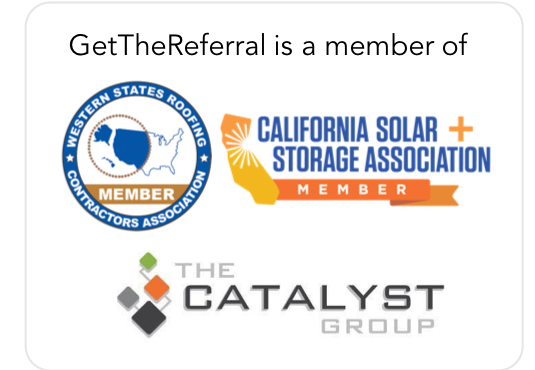B2B Referral Program
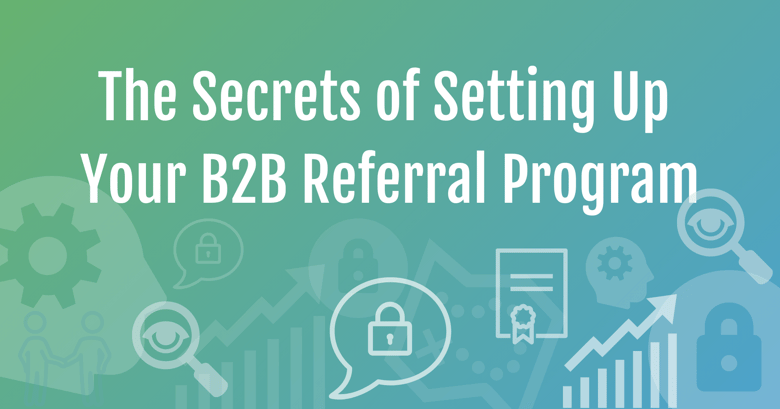
Why are Referrals so important?
We know word of mouth plays a special trust role on the subconscious mind when someone is considering purchasing a new product or service. The truth is that the higher the price tag, the higher the risk and the harder a decision it will be to make. The trust word of mouth helps buyers say yes quicker, and more often.
So, when choosing to make a purchase, a recommendation from a person of high standard will carry a lot of weight. It’s something you’re likely to trust. Not only that, but prospects will approach the company with more confidence than they would if they simply came across the on Google.
Take the example of a new CRM implementation in your company: you’d need to make a substantial initial outlay, then implement training for multiple people, manage the process of migrating all existing data into the new system and deal with any potential downtime while that happens.
Now imagine that you would do all of that with a company that you don’t have too much information about and experience with – risky, right? Knowing that a friend has already been through this process with his company, all went well and they liked their new CRM system will help you feel more comfortable with your decision.
What is a B2B referral program?
Referral programs are more as a B2C marketing strategy, and although they may not be talked about as much in the B2B space, it’s nonetheless an important tactic for B2B marketers to consider.
A B2B referral program will encounter Advocates (people willing to share their experience about a service or product with friends and family and invite them to become customers of this company too). Usually referral programs will involve a reward for the referrals.
Creating a referral program is inexpensive, sustainable, and requires relatively low effort compared to complex, multi-channel marketing campaigns. They deliver a lower cost per acquisition and a much higher ROI, compared to traditional marketing approach.
Differences between B2B and B2C.
In all forms of marketing, it costs more to acquire new customers than it does to continue to sell to the loyal customers you already have. In the B2B space, there are typically fewer customers to choose from and a higher value for each sale than in B2C, which makes business customer retention especially important.
Also, in the B2B environment, the process of acquiring new customers is often lengthy. It may involve months of lead nurturing to multiple people within the same company. The more expensive the product, the more likely a large number of team members will have to be convinced of the value of your product and eventually of loyalty to your brand.
And because you put so much work to get a new customer, the customer retention is so important, so prioritizing customer service and excellence in delivery should be part or every B2B company strategy.
You also need to maintain good relationships with your vendors as they tend to move to many other B2B businesses, and there are some who have a higher probability to become probable clients for you in the future. The higher respect and likability the vendors have towards you, there is a higher possibility that they spread the word about your business.
Referrals only work when the product or service is good.
Customer service is actually a VIP when it comes to running a referral program. Simply because without great customer service, there really wouldn’t be a desire to refer said product/service/business with family, friends, or business associates at all. In a study by American Express, they found that 7 in 10 Americans were willing to spend more with companies they believe provide excellent customer service.
In the same study by American Express, they found that Americans tell an average of 9 people about good experiences and tell 16 people about poor experiences. This means it’s imperative to provide good customer service. Three easy ways to make sure you have the best customer service in place are:
- Be responsive: stay on top of things. Don’t let customers' comments and questions go unanswered for too long. The longer they wait the more they stew. Best to get yourself in the position to help as soon as possible.
- Be sincere: the more sincere you are, the better chance you have to make a customer happy. The tone you use, and the way you act towards a current customer, can either make or break their experience. Find the balance, be respectful, and be helpful.
- Be consistent: create processes so that all customers are getting equal attention. Set some standards for customer interactions. Make sure you have customer ticketing software in place that helps make things easier, or centralize all the requests in one person/team, so it’s easier to track and excel them efficiently.
Have a system for your B2B Referral Program
1. Set up your rewards.
While B2B clients may not be impressed with the same type of rewards that are offered to B2C clients, there still are ways to reward B2B clients through incentivized B2B loyalty programs. Start by determining which actions you would like to reward. These actions may include reviews, referrals, or answering questions in product support forums.
The next step is to decide what type of rewards you would like to offer. You could offer cash incentives or add-ons. You might also offer exclusive benefits such as early access to new product features, market research that is only available to existing customers, opportunities to be involved in beta testing, or more personalized support.
2. Create referral marketing.
Marketing to B2B customers requires a professional, informative approach that clearly explains the product or service’s benefits. B2B customers want facts more than entertainment.
If you do not have social media with a LinkedIn and Facebook presence, it’s high time to build it. In the recent times, everybody out there wants to see what people have to say about their products and service on social media sites. It just takes a simple question, such as thoughts on whom to appoint for a project, or which next product to develop to keep the comments flowing in.
So, it’s the right time to get your B2B business drawn in social media marketing and update it regularly. Make a habit of checking sites regularly and responding to the comments and queries too. Possible clients see unanswered inbox messages as ill-mannered and you tend to lose them for sure.
Another good strategy is to map review and company comparison sites, and make sure you have a robust amount of reviews there. Reviews and referrals walk together, they complement each other and having your company’s performance positively evaluated on these sites will help you boost your online reputation.
3. Know when it the best time for referrals.
This debate circles around answers such as “You don’t ask for referrals, you earn them!”, “You should ask for referrals at the point of sale or when closing the deal.”, “You ask for referrals after you deliver your product or service.”, “You wait for a certain amount of days after you deliver, and then you ask.” But these are “the most typical answers” not the best answer. Which one works best? Well, it’s a combination!
Every Moment is a Moment to Refer! First off, it’s essential that you provide excellent customer service, so your customers will find it easy to refer you to their friends and family. Then, during the sales process, it’s important to mention you have a referral program, and if you offer a reward for it. Finally, at the end of the sales process, your customer should be all warmed up and excited about your company.
Be sure to nurture each customer relationship, also after the sales process, as they will send you more referrals. Keep in contact with these customers through email marketing, for example, so they know of new items you are offering and specials you might have going on. This way they can let their friends and family know.
And the best part is that with referrals you’re usually tapping into a qualified market. In B2B, a lot of businesses and their employees know each other. If you’re offering up a referral reward to a current B2B customer, chances are, they know 10 companies just like theirs. It’s like getting somebody to do your prospecting — for free! Can’t argue with that.
4. Make it easy to for advocates to give you referrals.
While patience still may be a virtue, it’s a virtue that many people now decide they can live without. That’s why it’s increasingly important to ensure that your referral program has the lowest barrier to entry. The easier it is for advocates to register and sign in, the more participation you will see in your referral program.
The best way to reach out and keep in touch with your customers is through a referral app, and there are two main reasons for that: In the U.S., 77% of adults own a smartphone. People who own smartphones spend over 80% of their time using apps as opposed to internet browsers (Source: Flurry).
Your business can benefit from having a customer referral app since it will increase their time connecting with your brand, consequently increasing the chances for referrals. One key point to increase your customer referrals is to make the referral process easy, and that is what a customer referral app does.
5. Analyze your referral data and success.
Here’s the thing about referral marketing programs: they’re only successful if you’re following up the new prospects in your sales funnel.
The first part of doing this successfully is figuring out how to capture and qualify the leads. If you want to put this on autopilot and nurture your leads as soon as they enter your sales funnel, using a CRM might be the answer.
B2B Referral Program
When you track your referrals, you can figure out:
- The number of Advocates signing up on your program: At the end of the day, any business wants to have as many Advocates as possible (meaning 1 existing customer = 1 Advocate).
- Who are your best Advocates! Your best Advocates would be the ones who send you more referrals and those referrals end up as closed deals for your business. The average of referrals per Advocates is around 2, but if your company takes the referral program seriously and track referrals on a daily or weekly basis, the number can be doubled or even tripled.




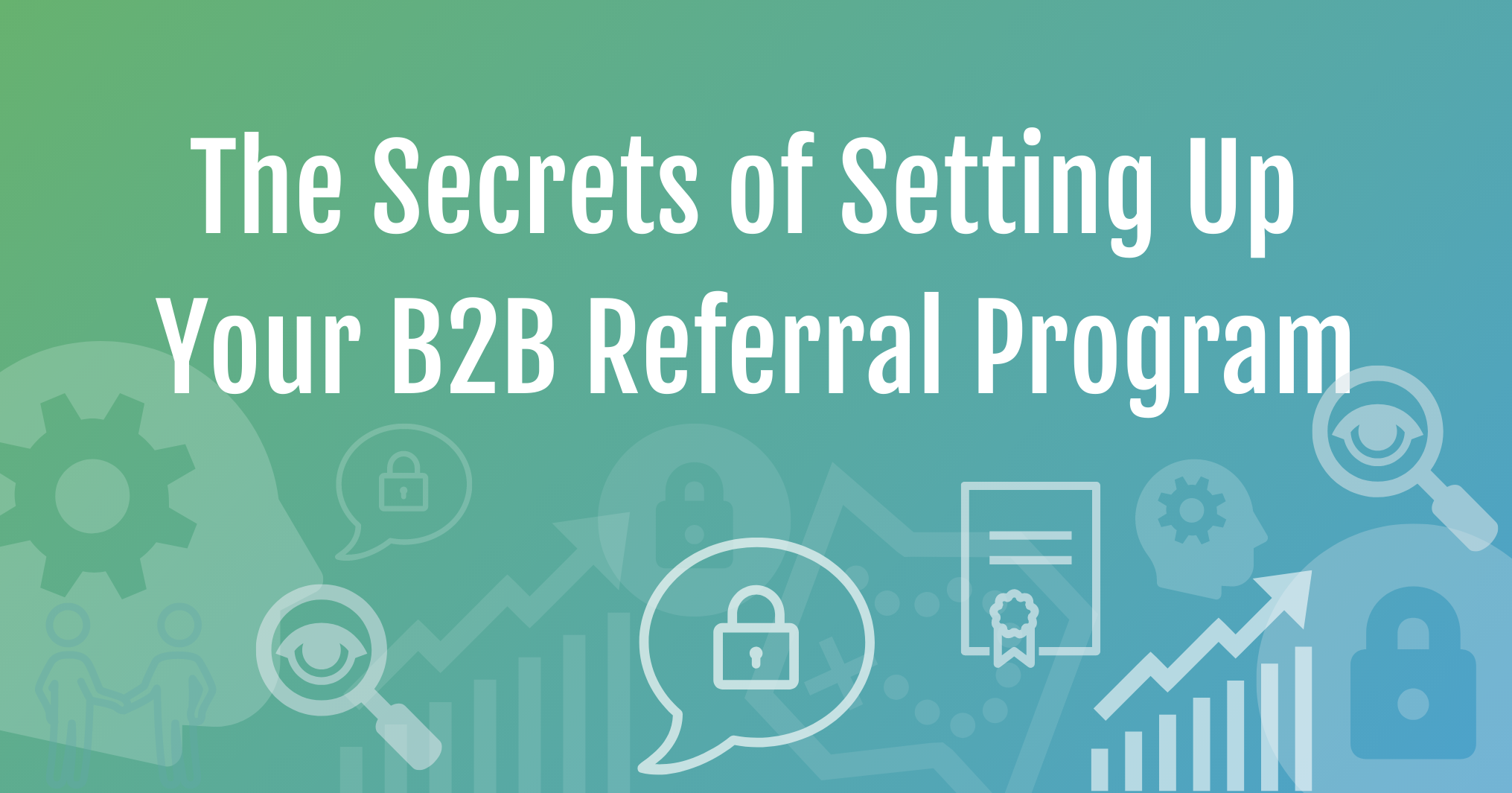 The Secrets of Setting Up Your B2B Referral Program.">
The Secrets of Setting Up Your B2B Referral Program.">

